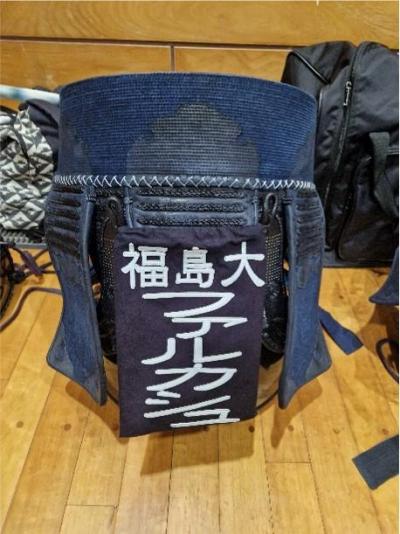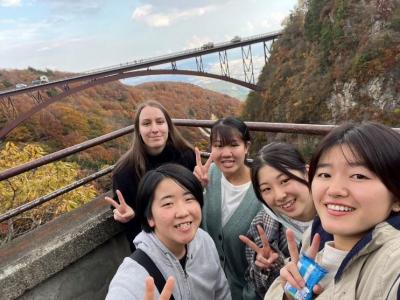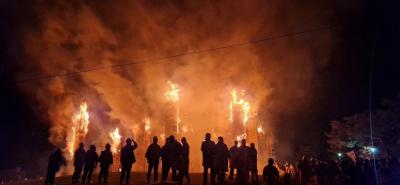

A little over three months ago, I arrived in Fukushima. Back home at my university, I had heard several reports about the Japanese exchange programs, and Fukushima was the one that particularly caught my interest. Since then, I have not regretted choosing Fukushima. Before coming here, I knew nothing about the prefecture apart from the 2011 disaster, and even that knowledge was limited. I appreciate that, in addition to language lessons, we have the opportunity to learn about Fukushima's history. Fukushima is much more than just the infamous nuclear disaster known overseas. It is a place with beautiful scenery, delicious food, and wonderful people. Since I've been here, I have received a lot of kindness from the local people. Despite language barriers, they are helpful, open, and friendly. I easily joined the university kendo club, and I also managed to find a part-time job, which has greatly improved my language skills.
Three months ago, upon our arrival, the university held an orientation where we got to know the staff at the international center, selected our courses, received a comprehensive overview of the university, and were provided with useful information about Japan. The first weeks were immediately exciting, as during the first week of classes, we visited Iizaka, where we participated in a local festival organized by the Rotary Club. We carried a mikoshi while shouting "wasshoi," tasted the famous Fukushima peaches, and bathed in an onsen. We stayed in Iizaka to witness the Fighting Festival at Hachiman Shrine, where mikoshi carriers faced each other and crashed the giant portable shrines together. It was the first festival I experienced in Japan, and it was incredibly thrilling.
Life didn't slow down after that. Every weekend is filled with some program, exploring the city, part-time work, university classes, and club activities, these are really making time fly. Joining the university kendo club brought me immense joy. I've been practicing kendo since high school, and it was through kendo that I first came to Japan four years ago. I decided then that I wanted to learn Japanese and return for a longer period. The Fukushima University kendo club is small, creating a family-like atmosphere, and I quickly became friends with everyone. Being part of the club significantly contributes to my language development. We chat a lot before and after practices, and sometimes we organize activities together. In October, we went on a trip to admire the beautiful autumn colors. 
In October, the university also organized a two-day festival where students arranged various programs and lectures. This weekend was an excellent opportunity to get to know not only other exchange students but also Japanese students. The programs were entertaining, featuring a haunted house and outstanding acapella performances.
Later in November, we attended another festival. This one was self-organized but still within Fukushima Prefecture, in Sukagawa. The Taimatsu Akashi is one of the largest fire festivals in Japan. During the festival, numerous giant wooden torches were lit accompanied by drumming and chanting. The entire event was a mesmerizing spectacle.
The university also arranged educational programs and field trips for us in the past few months. As part of our Fukushima History and Culture class, mainly focusing on the 2011 disaster, we took a day trip to visit the Fukushima Daiichi Nuclear Power Plant. On the way there, passing through Ookuma and Futaba, we saw abandoned buildings, houses, and vehicles. Experiencing the aftermath of the disaster up close was a completely different feeling. During the power plant visit, we received a lot of information about how they handle contaminated water, the purification processes it undergoes before being released into the sea, and we had a close look at the damaged units. They explained the radiation levels and future plans regarding radioactive materials in each unit.
These two trips and the course itself have significantly contributed to my current knowledge about Fukushima. The field trips helped me better understand what it was like to experience the earthquake-induced catastrophe in 2011.
I am truly enjoying my time in Fukushima so far, and i am without a doubt looking forward to the rest of the exchange year.